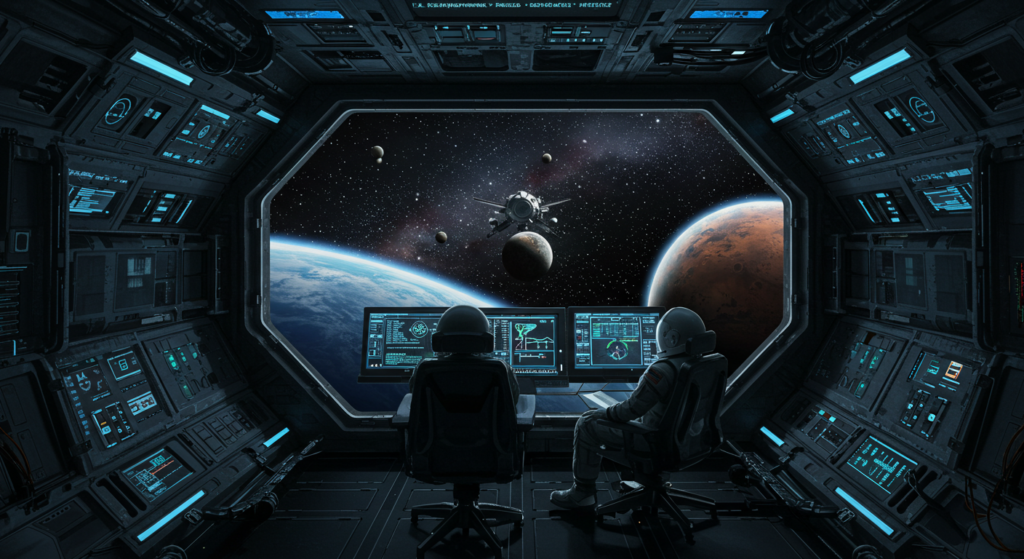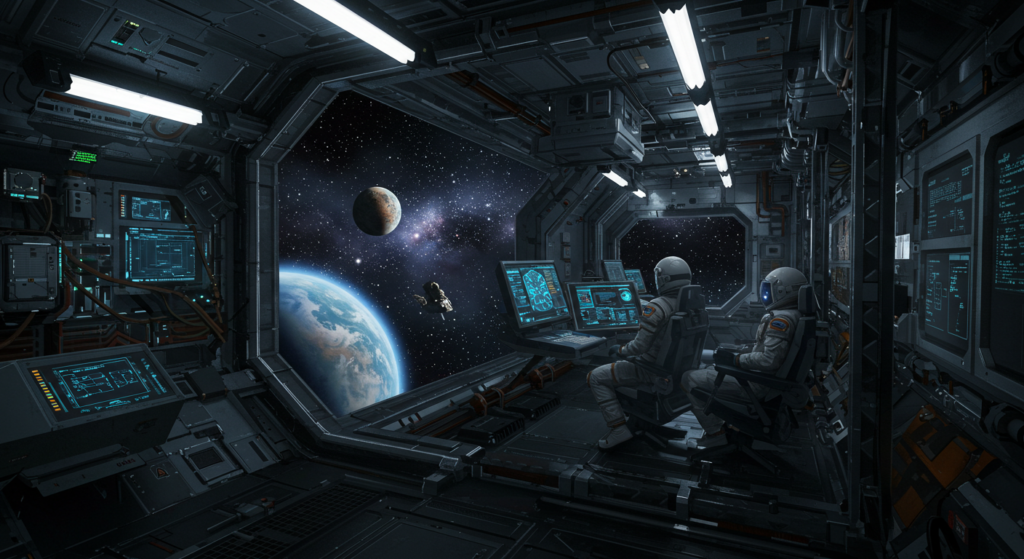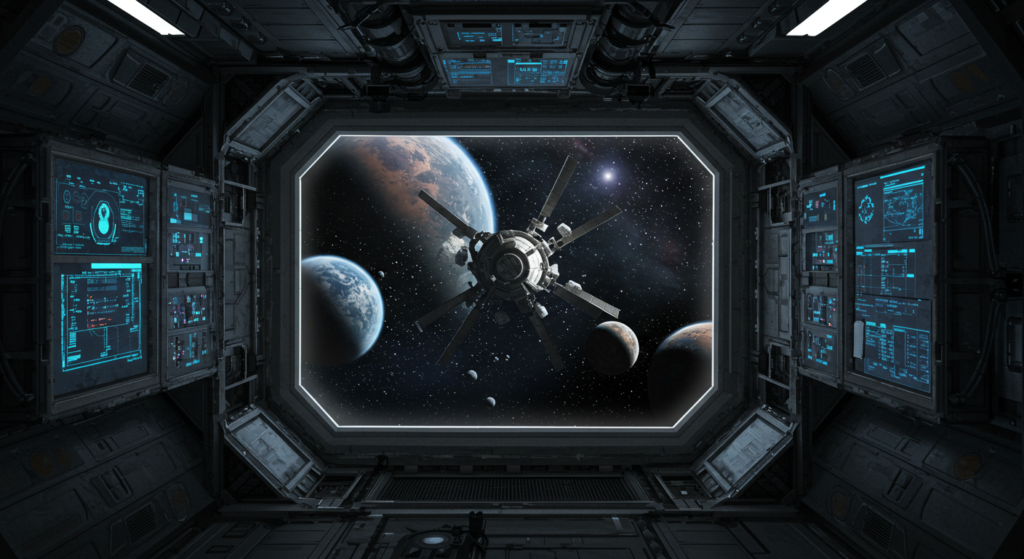The challenges of deep space travel are profound and multifaceted, demanding our attention as we strive to explore the universe. These obstacles not only test our technological prowess but also challenge our understanding of human resilience in extreme environments. From health risks associated with cosmic radiation to the psychological toll of isolation, each factor plays a crucial role in the success of future missions to Mars and beyond.
As we embark on this journey, it is vital to recognize the intricate web of challenges that lie ahead. Technological advancements, such as innovative life support systems and propulsion methods, are essential for ensuring astronaut safety and well-being. This article will delve into the complexities of deep space travel, exploring how we can overcome these hurdles to unlock the mysteries of the cosmos and perhaps even encounter the unknown, including the possibility of life beyond Earth.
Standing on the brink of a new era in space exploration, we feel a mix of excitement and apprehension. Imagine being one of those brave astronauts, floating in the vastness of space, with Earth a distant memory. The challenges they face are not merely technical; they are deeply human. How do we prepare for the unknown, both physically and mentally? These questions resonate with all of us who dream of the stars. As we dive deeper into the intricacies of deep space travel, let’s remember the human spirit that drives us to explore, push boundaries, and seek new worlds. Together, we will uncover the solutions that could transform interstellar travel from a dream into reality.
Discover the Unseen Challenges of Deep Space Travel That Could Change Everything
Deep space travel poses significant challenges, including health risks from radiation, psychological effects on astronauts, and the need for advanced life support systems. As we ponder the vastness of space, one can’t help but wonder what lies beyond our current understanding.
With attention to the vast distances involved, deep space travel presents challenges that must be addressed for successful missions. The physical and psychological effects of long-duration space travel can lead to health issues, including muscle atrophy and mental fatigue. Surprisingly, radiation exposure in deep space is much higher than in low Earth orbit, posing risks of cancer and other illnesses. Basically, spacecraft must be equipped with advanced life support systems to sustain human life for extended periods. Most compelling evidence of these challenges can be seen in NASA’s studies on the effects of microgravity on the human body.
To illustrate, astronauts face severe health risks during long missions. Prolonged exposure to cosmic radiation can lead to serious complications, including increased cancer risk. Mental health also suffers due to isolation and confinement, leading to anxiety and depression. The stakes are high, and the countdown to Mars is ticking—are we ready for the challenge? Consequently, understanding these health risks is essential for astronaut safety.
Equally important, technological advancements are crucial for overcoming these challenges. NASA and other space agencies are developing advanced life support systems to sustain astronauts during long missions. These systems must efficiently recycle air, water, and waste while providing adequate nutrition. Moreover, propulsion technology is evolving to enable faster travel to distant destinations, such as Mars. Researchers are exploring innovative propulsion methods, including ion drives and nuclear thermal propulsion.
In brief, the challenges of deep space travel encompass health, technology, and psychological factors that must be overcome. Addressing these challenges involves understanding the human factors that influence mission success. As humanity ventures further into space, grasping these issues will pave the way for successful exploration of the moon, Mars, and beyond. Ultimately, overcoming these challenges will bring us closer to answering profound questions about life beyond Earth.
Can we ensure astronaut well-being on perilous Mars journeys
The exploration of Mars necessitates advancements in technology and support systems to ensure astronaut safety during long missions. As humanity aims to reach Mars, we must confront the numerous challenges that arise in deep space travel.
The journey to Mars will undoubtedly demand cutting-edge technology to safeguard astronauts. Advanced life support systems must provide essential resources like oxygen and water while efficiently recycling waste. Furthermore, these systems must adapt to the unique conditions of space, ensuring that astronauts remain healthy throughout their journey.
In addition, the technology for propulsion systems must evolve to reduce travel time to distant destinations like Mars or the outer planets. Current propulsion methods are insufficient for the long durations required for such missions. Researchers are exploring new propulsion technologies, including ion drives and nuclear thermal propulsion, to facilitate faster travel. These advancements will significantly impact the feasibility of reaching Mars and beyond.
Without a doubt, the psychological challenges of isolation and confinement during long missions need to be addressed through support systems and training. The psychological toll of space travel is like a silent passenger on every mission, waiting to be addressed. Astronauts may experience anxiety and depression due to the extended time away from Earth. Therefore, implementing robust mental health support systems is crucial for maintaining astronaut morale. It’s like being on a long road trip with no rest stops—how do you keep spirits high? Such systems can provide astronauts with the tools they need to cope with the psychological stresses of space travel, ultimately enhancing mission performance. Training programs that prepare astronauts for the psychological demands of space travel will enhance their resilience during missions.
Until we develop reliable technologies, the dream of exploring the universe remains a daunting task. The challenges of deep space travel encompass not only physical health risks but also mental well-being. As we advance our understanding of space exploration, we move closer to unlocking the mysteries of the universe.

Can the Challenges of Deep Space Travel overcome the terrifying health risks ahead
The challenges of deep space travel are multifaceted, encompassing health, technology, and psychological factors that must be overcome. With attention to the physical toll on astronauts, issues such as muscle atrophy and bone density loss arise due to prolonged weightlessness. Correspondingly, the psychological effects of isolation and confinement can lead to significant mental health challenges.
To illustrate, research into artificial gravity and other solutions is ongoing to mitigate these challenges. Scientists are exploring various technologies that could simulate gravity, thereby helping to maintain astronaut health during long missions. Without a doubt, these innovations are crucial for ensuring the well-being of astronauts as they embark on journeys beyond our planet.
In brief, these challenges will need to be addressed sooner or later to make interstellar travel a reality. At this time, understanding these obstacles is essential for future space exploration missions. As an illustration, the development of advanced life support systems and psychological support frameworks will play a vital role in preparing astronauts for the rigors of deep space.
With this purpose in mind, we must also consider the implications of long-duration missions, such as those to Mars. Space exploration not only requires technological advancements but also a comprehensive approach to astronaut well-being. Occasionally, the mental and emotional health of crew members can be overlooked, yet it is just as critical as physical health.
In conclusion, addressing the myriad challenges of deep space travel is imperative for the future of space exploration. By focusing on health, technology, and psychological factors, we can pave the way for successful interstellar missions.
Can we ensure astronaut well-being on perilous Mars journeys
To illustrate, ensuring astronaut well-being on perilous Mars journeys involves a holistic approach that integrates physical health, mental resilience, and social dynamics. With attention to the unique challenges posed by the Martian environment, strategies must be developed to support astronauts throughout their mission. Most compelling evidence suggests that fostering strong interpersonal relationships among crew members can significantly enhance their ability to cope with stress and isolation.
In the same way, implementing regular communication with Earth can provide emotional support and a sense of connection, which is vital for maintaining morale. Ultimately, as we advance in our quest for space exploration, prioritizing astronaut well-being will be essential for the success of future missions.

As We Explore the Challenges of Deep Space Travel, the Journey’s End is Near
Did you know that deep space travel presents astronauts with not only the thrill of cosmic exploration but also significant health risks from cosmic radiation? Imagine being confined in a spacecraft, millions of miles from Earth, fully aware that the environment around you could have lasting effects on your body. This is not mere science fiction; it’s a pressing reality for those daring enough to venture into the unknown. As we contemplate the future of space exploration, it’s vital to recognize that these challenges extend beyond technical hurdles—they are deeply personal experiences for the astronauts involved.
The journey to the stars is fraught with obstacles, from the physical toll of radiation exposure to the mental strain of isolation. Picture yourself in a small spacecraft, enveloped by the vast emptiness of space, with only a few fellow explorers for company. The stress and anxiety that can arise in such situations are palpable. Therefore, it is crucial to support the development of advanced life support systems and effective communication tools. These innovations are not merely technological advancements; they are essential for ensuring that our astronauts can thrive, both physically and mentally, during their missions.
In summary, as we gaze toward the exciting possibilities of Mars and beyond, prioritizing the health and safety of our astronauts is imperative. By investing in the right technology and support systems, we can empower them to navigate the challenges of deep space travel. Let’s unite in our efforts to unlock the mysteries of the universe, ensuring that those who dare to explore it are well-equipped for the journey ahead.
Listen to an AI-Generated Podcast of The Challenges of Deep Space Travel
Is Space the Final Frontier of Exploration
Did you know that space exploration reveals astonishing facts about our universe? For instance, NASA’s telescopes have discovered thousands of exoplanets. Of course, some of these planets may harbor conditions suitable for life. Accordingly, scientists continue to search for signs of aliens beyond Earth. Although we have not yet found definitive proof, the search remains a priority. Important to realize, black holes challenge our understanding of physics and the universe. As can be seen, the mysteries of space captivate astronomers and enthusiasts alike. Therefore, missions to Mars and the moon aim to expand our knowledge further. Lastly, the quest for understanding space fuels technological advancements that benefit life on Earth. In the meantime, we must continue to explore and learn about our cosmic surroundings.
FAQs
What are the main challenges of deep space travel?
The challenges of deep space travel include health risks, psychological effects, and technological needs for astronaut safety.
How does cosmic radiation affect astronauts?
Cosmic radiation poses serious health risks, including increased cancer risk and other illnesses during deep space missions.
What psychological effects do astronauts face in space?
Astronauts experience isolation and confinement, leading to anxiety and depression during long-duration missions in space.
How does NASA address the health risks of deep space travel?
NASA develops advanced life support systems to recycle air, water, and waste, ensuring astronaut health during missions.
What advancements are being made in propulsion technology?
Researchers explore innovative propulsion methods, including ion drives and nuclear thermal propulsion, to reduce travel time to Mars.
Why is mental health support crucial for astronauts?
Mental health support helps astronauts cope with stress and isolation, enhancing their resilience during long missions in space.
How does isolation impact astronauts on missions to Mars?
Isolation can lead to significant mental health challenges, making it essential to implement robust support systems for astronauts.
What role does technology play in ensuring astronaut well-being?
Technology provides essential resources and support systems, helping astronauts maintain physical and mental health during space exploration.
Can we simulate gravity to help astronauts?
Research into artificial gravity aims to mitigate health issues like muscle atrophy and bone density loss during long missions.
What is the importance of interpersonal relationships among crew members?
Strong interpersonal relationships enhance astronauts’ ability to cope with stress and isolation during their challenging journeys in space.
ORDER YOUR SEO OPTIMIZED BLOG TODAY
If you’ve landed on this page while searching for SEO marketing — well, that’s the proof right there. You found us through SEO. In fact, we haven’t used social media. We haven’t run paid ads either. Instead, we’ve relied solely on our own articles. So, why not let it work for you too? Go ahead — order your blog with us.
Each one is generated using our custom-built AI prompt system. From there, it’s enhanced further with carefully crafted prompts to improve clarity, structure, and keyword focus.






